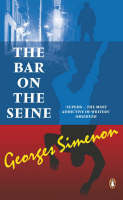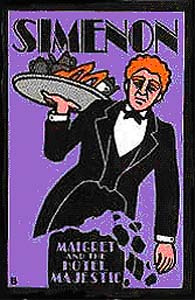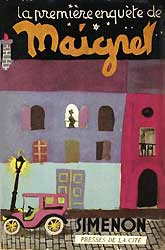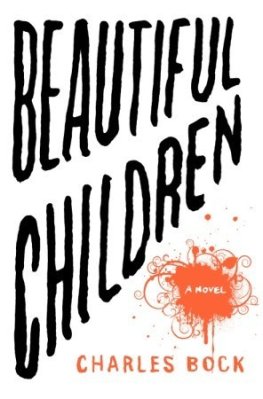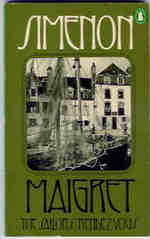Georges Simenon
Act of Passion
CONTENTS
Chapter One
Monsieur Ernest Comliau Examining Magistrate 22 bis Rue de Seine Paris (VII)
Your Honour:
[This letter is addressed to an examining magistrate, whose title in France is Judge. In French judicial procedure, before the trial, he extracts from the accused and the witnesses testimony and evidence which he reports to the magistrate who presides at the trial, but he does not appear at the trial to prosecute or defend.]
I should like one man, just one, to understand me. And I would like that man to be you.
We spent many long hours together during all the weeks of the preliminary investigations. But at that time it was too soon. You were a judge, you were my judge, and I would have seemed to be trying to justify myself. But now you know, don't you, it has nothing to do with that?
I have no idea what your impression was when you came into the courtroom - familiar to you, of course. As for me, how well I remember your arrival! I was alone between my two guards. It was five o'clock in the afternoon and the twilight was beginning to gather in clouds, as it were, around the courtroom.
It was one of the reporters - their table was near the prisoner's dock it was a reporter, as I say, first complained to his neighbour that it was getting too dark to see clearly. The neighbour spoke to the journalist next to him, a rather sloppily dressed old man with cynical eyes, probably a habitu of the law courts. I don't know whether I am mistaken, but I think he was the one who wrote in his paper that I looked like a toad in ambush.
Perhaps that is why I wonder what impression I made upon you. Our dock - that is, the prisoner's dock - is so low that only the head can be seen above it. It was therefore perfectly natural to keep my chin resting on my hands. I have a wide face, much too wide, which gets shiny easily. But why a toad? To make his readers laugh? Through pure malice? Because he didn't like my looks?
These are minor details, you must excuse me. It is of no importance. The old reporter, whom lawyers and magistrates greet familiarly, gave the Presiding Judge a little sign. The latter leaned over towards the associate judge on his left who, in turn, passed on the message. And thus, finally, the order reached the court attendant who turned on the lights. If I mention this little sideplay, it is because it interested me for quite a while, and reminds me that, when I was a young boy, what fascinated me most at church was to watch the sacristan lighting and extinguishing the candles.
Well, as I said, it was at that moment, with your briefcase under your arm and your hat in your hand, that you slipped in, with an almost apologetic air, among the young law students blocking the entrance. It seems one of my lawyers sorrowfully told me so - that during most of the trial I behaved very badly. But then, they uttered such stupidities! And with such solemnity! They tell me that I sometimes shrugged my shoulders and even smiled sarcastically. An evening paper published a photograph of me taken with a smile on my face during, as he points out, the most pathetic moments in the testimony of one of the witnesses.
'The hideous smile of the accused.'
Some people, it is true, speak of Voltaire's hideous smile!
You came in. I had never seen you except behind your desk. You reminded me of the surgeon who comes hurrying into the hospital where his students and assistants are waiting for him.
You did not look in my direction immediately. And yet, what a mad desire I had to greet you, to establish a human contact with you! Is that so ridiculous? Is it cynicism to use the word that was so often employed with reference to me?
We had not seen each other for five weeks. During the two months of the preliminary investigation we had talked with each other almost daily. Do you know, even waiting in the corridor outside your office was a pleasure, and I still sometimes find myself thinking of it nostalgically?
I can still see the line of dark doors to the magistrates' offices as in a monastery - your own door, the benches between the doors, and the floor of the long corridor disappearing in the distance. I was between my two gendarmes, and on the same bench; on other benches sat free men, witnesses, both men and women, and sometimes handcuffed prisoners.
We would sit there staring at one another. That, all that, is what I shall have to explain to you, but I realize that it is an almost impossible task. It would be so much easier if you too had killed!
Just think! For forty years, like you, like everybody else, I was a free man. Nobody dreamed that I should one day become what is called a criminal. In other words I am, in a way, only a criminal by accident.
And yet, when, in your corridor, I watched the witnesses (sometimes people I knew, since they were witnesses in my case), our glances were just about the same as those a man might exchange with a fish.
On the other hand, between those with handcuffs and myself a sort of bond of sympathy was automatically established.
Please don't misunderstand me. I shall probably have to come back to this later on. I have no sympathy for crime, or for murderers. But the others are really too stupid.
Forgive me. That is not exactly what I mean, either.
You came in, and only a short time before, during the recess, after the reading of the interminable indictment - how can a man of good faith collect so many inaccuracies about one of his fellows? - I had heard you discussed.
Indirectly. You know the little room in which the accused wait before the session opens and during the recesses. It is like being backstage at a theatre. But, for me, it brought back memories of the hospital, relatives waiting the outcome of an operation. One passes in front of them - we pass in front of them - talking shop probably, pulling on our rubber gloves after putting out our cigarettes.
'So-and-so? Oh, he's been appointed to Angers ...'
'Didn't he get his degree at Montpellier at the same time as ...?'
I was sitting there on a shiny bench, like the relatives.
Lawyers passed by me, finished their cigarettes, looked at me vaguely without seeing me, as we look at the husband of a patient.
'He's a first-rate fellow, from all accounts. His father was justice of the peace at Caen. He must have married one of the Blanchon girls...'
That is the way they were talking about you, as I might have talked a few months before, when we belonged to the same world. At that time, if we had lived in the same city, we would have met a couple of times a week at bridge tables. I would have called you 'My dear Judge' and you would have called me 'My dear Doctor'. Later, as time went on, it would have been:
'Comliau, old boy.'
'Alavoine, my dear fellow.'
Would we really have become friends? Hearing them talk about you made me ask myself that.
'No, no,' the second lawyer replied. 'You are getting him mixed up with another Comliau, Jules, his cousin, who was disbarred in Rouen two years ago, and who did marry a Blanchon ... Our Comliau married the daughter of a doctor, whose name escapes me ...'
Another little bond between us.
At La Roche-sur-Yon I count a few magistrates among my friends. I never thought before of asking them whether it is the same with their clients as with our patients.
We lived almost six weeks together, if I can put it that way. I know, of course, that during that time you had other problems, other clients, other duties, and that your private life continued. But, just the same, I represented for you, as certain of our patients do for us, the interesting case.
You were trying to understand, I noticed that. Not only with all your professional honesty, but also as a man.
One little detail among others. We were never alone during our interviews, since your stenographer and one of my lawyers, almost always Matre Gabriel, were present. You know your office better than I do, the lofty window with its view of the Seine and the Samaritaine's rooftops like painted scenery, and the door of a closet, almost always ajar, exposing a wash-basin and towels. (I had one just like it in my office where I used to wash my hands between patients.)
Next page


